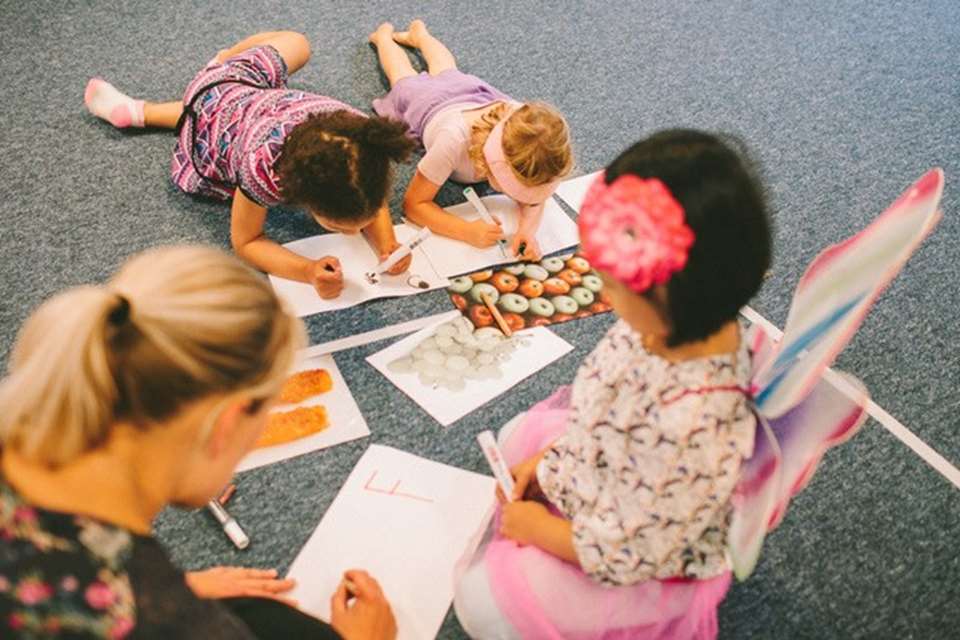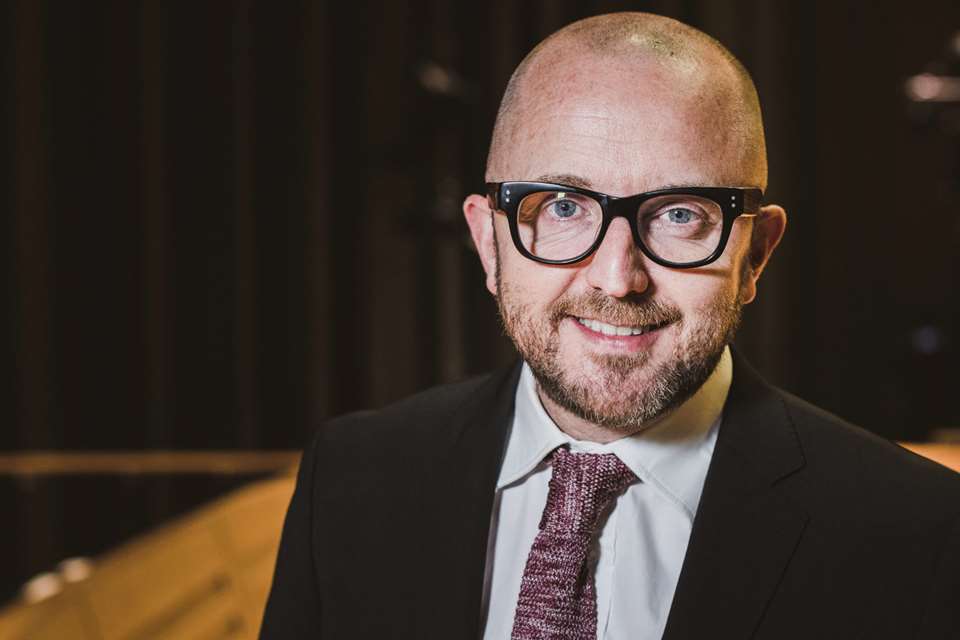Inclusive leadership: managing emotional baggage in the classroom
Chris Woods
Thursday, February 1, 2024
Music teachers often bring their own past experiences into the classroom, whether knowingly or unwittingly – and that can have a big impact on students. Chris Woods meets Dr. Liz Mellor to find out more.

Adobe Stock / Jakkapan
Life experiences inform our mindset. They help construct our beliefs and what many of us refer to as our ‘emotional baggage’ – those past emotions or unresolved traumas that sit in our subconscious and trigger us to feel and react. These beliefs and baggage come with us wherever we go – and that includes into the classroom and lessons, where teachers are particularly vulnerable to the consequences, as psychotherapist Dr. Liz Mellor reveals.
Past and present
I began our conversation, for the Music Education podcast and this article, by asking Mellor what role our experiences, beliefs, trauma and emotional baggage can play in music lessons and teaching. Her response was poignant and thought-provoking, pointing out that when we teach music, ‘our whole histories come into play’. Essentially, she’s saying that our past experiences play a role in the classroom. This can be a hard pill to swallow. Yet while it might not be something teachers hear very often and is likely to be uncomfortable to hear, it is a widely accepted idea in mainstream psychology.
To see just how mainstream, we can take a look at the prominent American psychologist Albert Ellis, one of the forefathers of the widely-used Cognitive Behavioural Therapy (CBT). One of his best-known theories encapsulates what Mellor describes. ‘Antecedents, Behaviour, Consequences’ – or ‘ABC’ – theory suggests that events create core beliefs, which in turn act as a filter through which you feel and react. In other words, your reactions to what’s happening right now (including in the classroom) are being filtered through what’s happened to you in the past.
Unique experience
After offering this simple bombshell, Mellor described some of her own early experiences of music, depicting how her instrument perhaps helped fulfil some emotional needs as a young person. For her, an instrument gave a ‘feeling of belonging, a sense of love’.
Mellor offered her personal experience for a purpose – she’s a psychotherapist, after all. All music teachers will have their own musical story to tell and, without question, it will be one that is tied to emotion. As Mellor points out, ‘The journey to becoming a music teacher can become infused’; infused, that is, with our experiences of music and with character-forming or character-changing life experiences.
Even if your first instrument wasn’t used as an emotional crutch, as a way of coping with life or as a means to create social interaction, you will have experienced the plethora of emotive or character-forming experiences that playing music naturally creates. One such example might be performing in front of others. Another important experience could be the simple act of motivating yourself to practise. All of these everyday musical scenarios are events that create beliefs and behaviours that could well still be with you today. Some may be positive, but of course many of these can also have negative effects.
Narcissistic by necessity
Plenty of musical situations require a deep focus on the self. There’s an emphasis on perfecting something personal to you, and often, for this, you need to have a strong belief in yourself. Without those abilities, getting up on a stage can be impossible. Therefore it’s perhaps unsurprising, although also a little uncomfortable, to hear Mellor explain that ‘quite a lot of narcissistic processes go on in musicians, sometimes necessarily. To keep a sense of yourself steady’.
Mellor breaks this down further, describing how there is a healthy element to narcissism. It’s this that gets us up on the stage. On the other hand, there’s an unhealthy element too, which comes into play with relationships. The ‘narcissistic’ person can find it difficult to see the ‘other’. Performing in public relies significantly more on self-focus than an activity like teaching does. In education, our empathy and ability to see others from multiple perspectives is crucial to success.
Those narcissistic character traits you developed to be able to perfect your scales and to get on stage might be helpful if you’re ‘acting’ in front of your class, but it’s easy to see how these traits might inhibit you from connecting with your students’ needs, reducing your ability to connect with others.
Ego in the classroom
Narcissistic character traits, belief systems and beliefs about ourselves are all aspects ultimately centred around what we might generally refer to as ‘ego’. But how do our egos directly or practically interact with our teaching?
Mellor described a project she ran with students on ‘inclusive leadership’, which paints an enlightening picture of how our ego functions in the classroom setting. The project supported music students who were seeking to work in education, and its aim was to help students analyse how much of an authentic leader they were.
Reading from transcripts of group discussions made during her research, Mellor picked out how one student noticed the importance and need to ‘let go of perceived control’. The teacher had conveyed that they (or their ego) believed that no music-making in the class could happen until they arrived. It’s an important point. Our ego can shape the whole positioning we have as teachers. If we believe we are crucial to music in the classroom, then our lessons will be shaped accordingly. I wonder if, inspired by Mellor’s student, we can ask ourselves challenging questions. Are we prepared to relinquish control? Are we prepared to accept we might not be integral to students’ music-making? Are our lessons based around our beliefs that without us music-making can’t happen?
Moving out of the way
When I began taking to Mellor, I imagined our discussion might centre on those more general, perhaps more obviously profound or troubling experiences we have in life – the loss of a loved one, say, or a traumatic accident. However, while we have acknowledged how all those experiences will create beliefs and influence our reactions in the present, what became the most telling realisation is how our journey from musician to music teacher is, to quote Mellor, ‘infused’.
As we move from performer to leader, we carry with us some potent experiences and, as a result, some strong beliefs. And these will unquestionably be influencing our present and playing a role in the classroom. That’s particularly true if we are unaware of this process.
Mellor described how the students taking part in the inclusive leadership project were learning ‘humility’. I can’t think of a better word to use as a tool for teachers looking to overcome some of the negative consequences of ingrained beliefs and tightly-packed emotional baggage. If we can approach teaching with humility, there’s a chance that our ego and beliefs can play less of an invasive role, and our teaching practice will be healthier.
‘You bring all your assumptions of what you think you might be doing there,’ reflects Mellor. ‘But actually, when you really start to listen and really tune into the emotional needs of the group and you get yourself out of the way … then something different starts to change in the room, the energy changes’.
I don’t think the idea of ‘getting out of the way’ is something that is commonly mentioned in educational practice. It’s certainly not come up in even one of our over 60 Music Education podcast episodes with inspirational music educators. However, the idea of humility and of ‘getting yourself out of the way’ could well be some of the most powerful advice I’ve heard.
Listen to this article's accompanying episode of The Music Education Podcast, hosted by Chris Woods: themusiceducationpodcast.buzzsprout.com
Music Teacher is a media partner of The Music Education Podcast.



